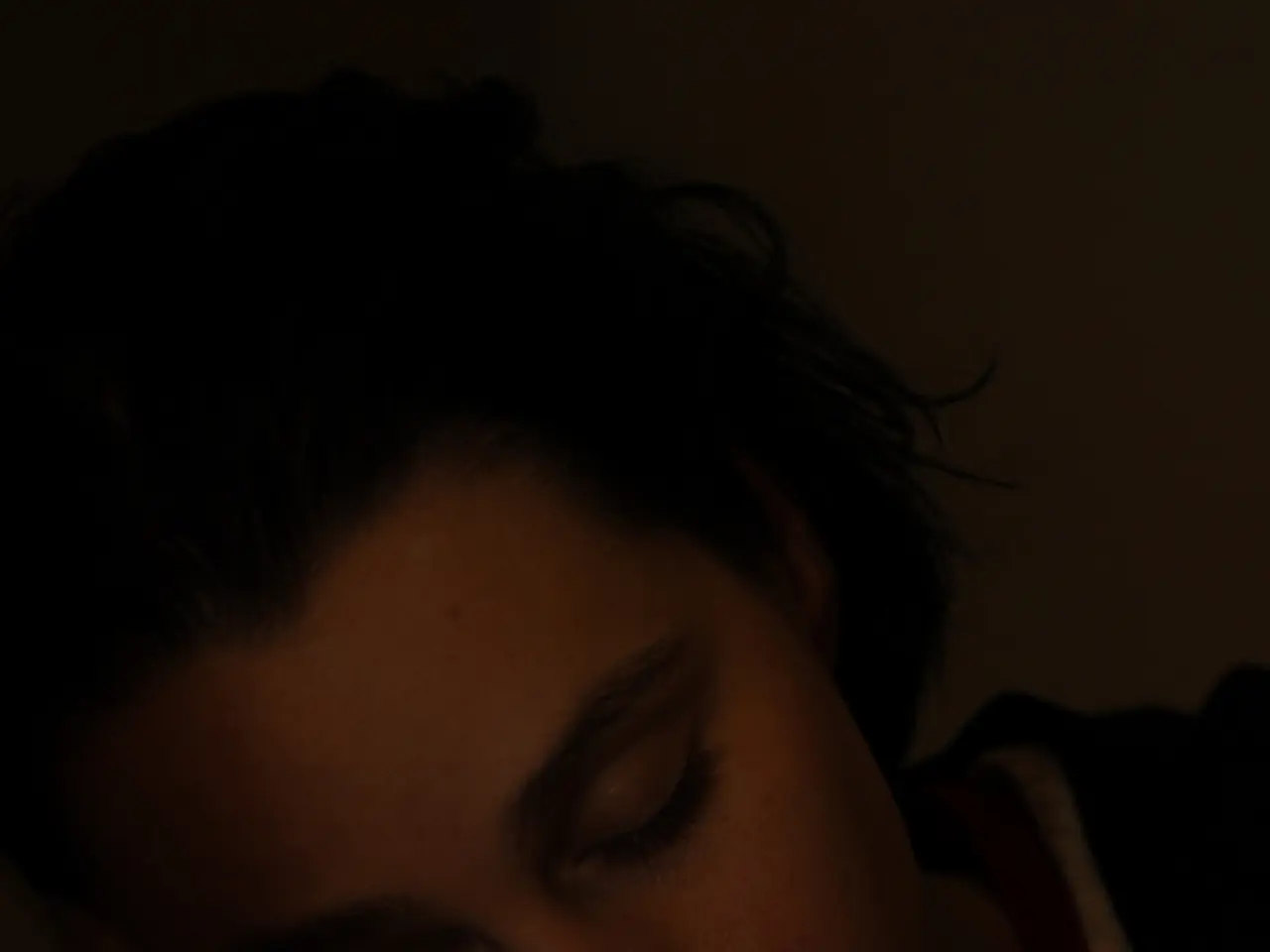Sleep Cycle Stages and Science's Insights on Your Choosen Sleep Posture
In the world of sleep, each position holds a unique story. While the connection between sleep positions and personality traits may not be scientifically proven, popular psychology offers intriguing insights that are worth exploring.
Let's delve into the nine distinct sleeping positions and the traditional interpretations associated with them.
The Fetal position, where one curls up with knees towards the chest, is the most common sleep position, adopted by over 40% of people, especially women. Those who sleep in this position are often seen as emotionally sensitive yet approachable. They may show a tough exterior but possess warmth and compassion underneath [1][2].
The Log position, where one lies on their side with their arms by their side, is the second most common sleep position. People who sleep like a log are known as social butterflies.
The Yearner position, where one sleeps on their side with their arms stretched out in front of them, is the third most common sleep position. People who sleep like this are a little complicated: they are open-minded, yet cynical; slow and suspicious when making a decision, but stick to it once their minds are made up. They don't necessarily like being the center of attention, but don't mind if they find themselves there from time to time [1].
The Stargazer position, where one lies on their back with their arms wrapped around their head, is associated with individuals who have a positive, "happy-go-lucky" outlook on life. Stargazers make their friends a priority and do anything in their power to help those they hold dear to them.
Starfish sleepers sprawl out over the entire bed, comfortable and carefree. Starfish sleepers are great friends who are eager to lend an ear or give a helping hand to their friends in need.
The Thinker position, where one will always have a hand gently resting on their chin, is similar to the fetal position, except for the hand placement. Emotions run high and tend to vary between two extremes for whoever finds themselves sleeping in this position.
The Soldier position, where one sleeps on their back with their arms by their sides, is the least common sleep position. Those who find themselves sleeping this way typically are quiet, reserved, and hold both themselves and other people to high standards and strict moral codes.
The Stomach sleeping position, where one sleeps on their stomach with their arms wrapped around their pillow and head turned to the side, is less common and associated with people who are bold, outgoing, and adventurous but may also tend to be more sensitive to criticism.
Lastly, the Freefallers sleep on their stomach with their arms wrapped around their pillow and head turned to the side. The personality traits of Freefallers are bold and sociable on the outside, but they may not have thick skin to deal with criticism or absurd situations.
However, it's essential to note that recent expert commentary emphasizes the lack of rigorous, peer-reviewed research strongly linking sleep positions to personality traits. Personality is complex and influenced by many factors beyond sleep posture, and sleep positions are more reliably linked to physical health conditions such as spinal alignment or breathing issues rather than psychological characteristics [2][4].
While these associations offer an interesting perspective, they should be regarded as intriguing but not definitive insights. Sleep positions are better understood in terms of their effects on physical health rather than as strong indicators of personality traits [1][2].
References:
[1] Walcutt, D. (2018). Sleep positions and what they can tell us about your personality. [online] The Huffington Post. Available at: https://www.huffpost.com/entry/sleep-positions-and-what-they-can-tell-us-about-your-personality_b_5954586
[2] Eden, R. (2019). The link between sleep positions and personality. [online] Verywell Family. Available at: https://www.verywellfamily.com/the-link-between-sleep-positions-and-personality-2600851
[3] Chey, T. (2016). Sleep disturbances in personality disorders. [online] Sleep Review. Available at: https://www.sleepreviewmag.com/2016/04/sleep-disturbances-personality-disorders/
[4] Doghramji, K. (2013). Sleep disorders and their impact on physical health. [online] Sleep Review. Available at: https://www.sleepreviewmag.com/2013/01/sleep-disorders-and-their-impact-on-physical-health/
[5] Mayo Clinic Staff. (2020). Sleep positions: What's your preference? [online] Mayo Clinic. Available at: https://www.mayoclinic.org/healthy-lifestyle/adult-health/in-depth/sleep/art-20047742
- The connection between sleep positions and mental health should not be taken as definitive, as expert commentary highlights the lack of peer-reviewed research linking sleep positions with psychological characteristics.
- It's important to note that while sleep positions can offer intriguing insights into personality traits, they are often more reliably linked to physical health conditions such as spinal alignment or breathing issues, rather than mental health traits.




